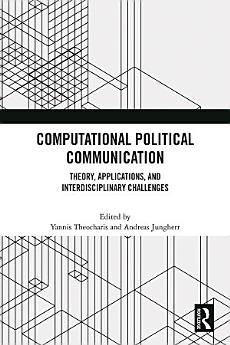Computational Political Communication: Theory, Applications, and Interdisciplinary Challenges
About this ebook
The book starts by mapping the challenges and opportunities of data collection and analysis, focusing on computational methods to address theory-driven questions in political communication. Chapters highlight the theoretical, empirical, and institutional aspects of Computational Communication Science (CCS) relevant to the field, assessing the challenges of data requirements, digital signal semantics, and the crucial role of infrastructures, academic institutions, ethics, and training in computational methods. Considering all of these aspects, individual chapters showcase methodological innovations, applying CCS to topics like clickbaiting in the context of propaganda in authoritarian regimes, the visual content produced by political elites, political and affective polarization, and the media coverage of public policy as well as framing in the news media. The volume also offers scholarly contributions on the theoretical, practical, and institutional significance of CCS and the challenges in realizing its potential in political communication.
A significant contribution to the field of political communication, this volume will be a key resource for scholars and researchers of communication studies, politics, media studies and sociology. It was originally published in Political Communication.
About the author
Yannis Theocharis holds the Chair of Digital Governance at the Technical University of Munich. His research interests are in political behavior, political communication, harmful speech and content moderation and computational social science. He is a core member of the Munich Data Science Institute and director of the Content Moderation Lab at the TUM Think Tank.
Andreas Jungherr holds the Chair for Political Science, especially Digital Transformation at the University of Bamberg’s Institute for Political Science. His research explores the impact of digital media on politics and society, with a particular emphasis on algorithms, artificial intelligence, and governance. He also investigates the challenges scientific research faces in response to digital change, aiming to unlock the opportunities presented by new data sources and analytical methods. His work centres on leveraging digital methods and computational social science, while also addressing the methodological challenges of integrating these approaches into the social sciences.





